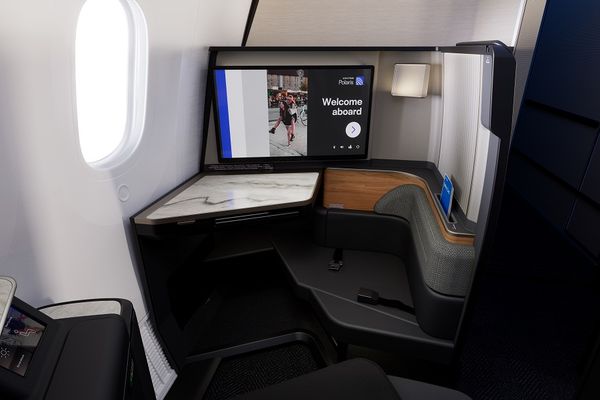Boeing continues to face issues with its 737 MAX line, with a fresh wave of problems after discovering misdrilled holes in the fuselages of 50 undelivered aircraft. This latest setback is attributed to its supplier, Spirit AeroSystems. These issues add to the plane's troubled history and raise concerns about production quality and potential delivery delays.
The issue came to light when a Spirit employee flagged discrepancies in the drilling of two holes on the fuselage. While Boeing assures these planes are safe and currently flying models are unaffected, the incident rekindles anxieties about the 737 MAX's production process, its adherence to safety standards, and Boeing's overall quality control.

Not The First Time
This is not the first time Spirit AeroSystems has been involved in quality control issues impacting the 737 MAX family. Last year, misdrilled holes on aft pressure bulkheads from the same supplier caused production delays. The recurring problems raise questions about the effectiveness of Boeing's oversight and quality control mechanisms throughout its supply chain.
The financial impact of this latest issue is yet to be fully determined, but Boeing's share price decreased by 2.2% on February 5. However, the price is in the overall green (1.55% increase) for the week. Reworking 50 planes will incur costs and potentially delay deliveries, impacting Boeing's production schedule and potentially straining relations with airlines awaiting their new jets.
Beyond the immediate financial implications, this incident overshadows Boeing's efforts to rebuild trust after the 737 MAX grounding following two fatal software-related crashes and the recent Alaska Airlines Boeing 737 MAX 9 incident. While the current issue is unrelated to those crashes, it fuels concerns about the company's ability to deliver safe and reliable aircraft consistently.

Stan Deal, CEO of Boeing, wrote:
"This past Thursday, a supplier notified us of a non-conformance in some 737 fuselages. I want to thank an employee at the supplier who flagged to his manager that two holes may not have been drilled exactly to our requirements."
He later added that the errors were "not an immediate flight safety issue and all 737s can continue operating safely."
Regulators will likely investigate this incident closely, potentially leading to additional inspections and stricter oversight. This could further slow down the production and delivery process, impacting Boeing's bottom line and reputation. The misdrilled holes also raise questions about worker training, quality control procedures, and the overall culture of safety at both Boeing and its suppliers, as this incident highlights the need for a thorough investigation to identify the root cause of the problem and implement corrective measures to prevent similar occurrences in the future.

Looking ahead, Boeing faces a critical task: regaining the trust of airlines, regulators, and the flying public. Addressing this latest issue transparently and proactively will be crucial. The company must demonstrate its commitment to rigorous quality control, robust safety protocols, and open communication throughout its supply chain.
Several key questions remain unanswered:
- What were the specific deviations in the drilling process?
- How did these discrepancies go undetected during quality control checks?
- What measures are being taken to ensure the safety of the affected aircraft?
- What steps are being implemented to prevent similar incidents in the future?
Only time will tell how Boeing steers this latest challenge. However, one thing is clear: the company must find a way to afford another misstep. The future of Boeing is in the hands of the 737 MAX, the plane that potentially brought down the company on several occasions.
Two Pilots Killed in Tragic Mid-Air Collision Near Hammonton Municipal Airport » 2025: Aviation Deaths are Down 27.3%, But Things Didn't Feel Safer » Final Delivery Tally and OEM Tracker »
Comments (0)
Add Your Comment
SHARE
TAGS
NEWS Boeing Quality Control 737 MAX Boeing 737 MAX Technical Safety Controversy Investigation Spirit AeroSystemsRECENTLY PUBLISHED
 This Week in Aviation: The 10 Stories That Mattered Most
From major airline developments to aircraft updates and industry shifts, this weekly recap highlights the ten most-read aviation stories from the week of December 28.
INFORMATIONAL
READ MORE »
This Week in Aviation: The 10 Stories That Mattered Most
From major airline developments to aircraft updates and industry shifts, this weekly recap highlights the ten most-read aviation stories from the week of December 28.
INFORMATIONAL
READ MORE »
 Nearly 500 Flights Cancelled Following Venezuela Attack, Caribbean Airspace Closure
Hundreds of flights have been cancelled this morning after an overnight U.S. military attack in Venezuela left airspace in much of the Caribbean closed.
NEWS
READ MORE »
Nearly 500 Flights Cancelled Following Venezuela Attack, Caribbean Airspace Closure
Hundreds of flights have been cancelled this morning after an overnight U.S. military attack in Venezuela left airspace in much of the Caribbean closed.
NEWS
READ MORE »
 Why Airline Class Wars Will Intensify in 2026
The "Class War" of 2026 is no longer just about legroom; it is a calculated, multi-billion-dollar strategic pivot by Original Equipment Manufacturers (OEMs) and carriers to capture a "splurge-ready" traveller base that is increasingly opting for "one big trip" over frequent, low-cost hops.
INFORMATIONAL
READ MORE »
Why Airline Class Wars Will Intensify in 2026
The "Class War" of 2026 is no longer just about legroom; it is a calculated, multi-billion-dollar strategic pivot by Original Equipment Manufacturers (OEMs) and carriers to capture a "splurge-ready" traveller base that is increasingly opting for "one big trip" over frequent, low-cost hops.
INFORMATIONAL
READ MORE »



